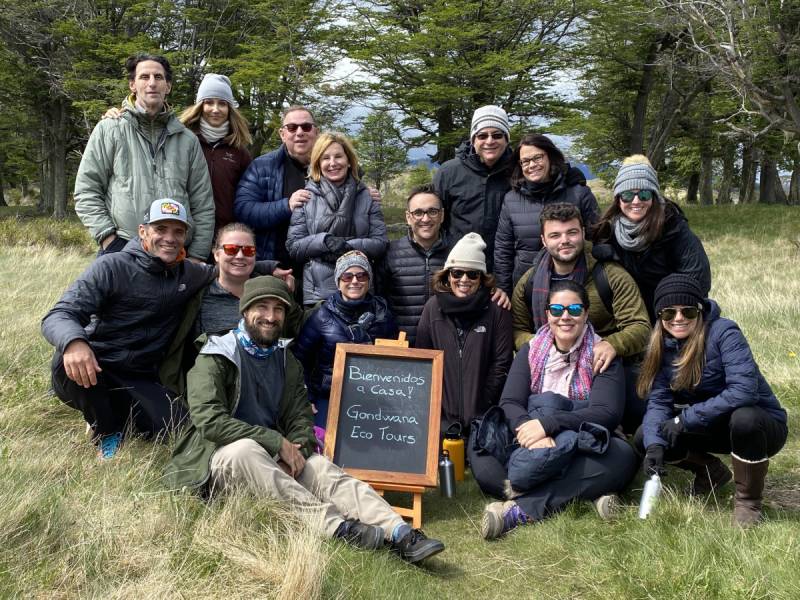Why Ecotourism Matters
In 2010, tourism as an industry supported more than 14 million jobs, and generated 1.8 trillion dollars in economic impact. That’s enough money to buy everyone in the United States 1,000 boxes of girl-scout cookies. With tourism being such an enormous part of the world economy and globalization making travel more tangible and appealing, it seems clear that the travel industry will only continue to grow. More people live on this planet, and more of them are getting out there and trying to piece it all together. And, as research points out, the current and future generations are building preferences for buying experiences rather than objects. Let’s just agree: there just seems to be more value in seeing the world through your own eyes than through your twitter feed. So with trains, planes, shoes, canoes and just about every form of travel on the rise, it’s important to find a way to make tourism and traveling sustainable.
Ecotourism: Balancing Travel and Preservation in Fragile Environments
This is what ecotourism, in part, aims to accomplish. Imagine that 50,000 people visit Alaska each year to go to Denali National Park. The impact on the local communities and environment of having 50,000 extra people who all need to eat some 500,000 meals, drive from point to point, and occupy lodging, is huge. Since ecotourism tends lead travelers to remote or fragile locations, this influx of visitors is even more pronounced, as opposed to, say, 50,000 travelers coming to Paris over the course of a year. One of the tenets of ecotourism (aside from having nature be central to the experience) is that the traveler’s presence should strengthen the local environment, not harm it. Many ecotourism agencies, like Gondwana Ecotours, work directly with local non-profits and native populations to ensure that money is going where it should: to people that are responsible stewards for the land, and to the local population. It’s quite evident that by bringing thousands of people to an otherwise rural or remote location, there is a strong likelihood of inviting negative aspects such as crowding, increased food prices, and pollution. In many cases, much of the revenue generated by tourism in small countries is being absorbed by hotel chains or large international companies, and not the locals. While, by law, a company billing themselves as “ecotourism” doesn’t necessarily have to integrate practices to mitigate and reverse these detrimental aspects of tourism to their model, many of them do.
Sustainable Alternatives to Conventional Travel, Protecting Nature and Supporting Endangered Species
Part of ecotourism’s definition is that it stands in opposition to a more conventional form of travel. Often, an ecotour will help travelers visit threatened natural environments. The purpose of many ecotours is to protect vanishing ecosystems and support endangered species. In addition to preserving and educating travelers about the natural world, many ecotourism outfits tend to go use recycled goods, reduce waste, and generally “green up”. The International Ecotourism Society (TIES) defines the principles of “ecotourism” by these qualities:
- Involves travel to natural destinations
- Minimizes impact
- Builds environmental awareness
- Provides direct financial benefits for conservation
- Provides financial benefits and empowerment for local people
- Respects local culture
- Supports human rights and democratic movements
- Contribute to Carbon Offsetting
Environmentalists and Businesses are Leading the Way Towards Sustainable Travel
Following these guidelines, many environmentalists and businesses are helping steer travel into clean, sustainable territory. In the future, with luck and dedication, each visitor to the Amazon Rainforest, Great Wall of China, or Redwood Forest will be a force that protects these local wonders. By promoting responsible tourism, these advocates aim to minimize the ecological footprint of travelers while maximizing the positive impact on local communities and ecosystems. Through initiatives such as supporting conservation projects, promoting eco-friendly accommodations, and educating tourists about sustainable practices, they strive to ensure that tourism becomes a force for good in protecting our planet’s most cherished landscapes and biodiversity hotspots. With continued dedication and collaboration, the vision of sustainable travel as a global norm may become a reality, safeguarding our natural heritage for future generations.
Read more about the role we play in protecting the coral reefs!Protecting coral reefs is paramount, which is why we’re excited to announce our new partnership with reef-safe sunscreen brands. By using products that are free from harmful chemicals, we’re ensuring the health and longevity of coral ecosystems while enjoying the beauty of underwater worlds.


